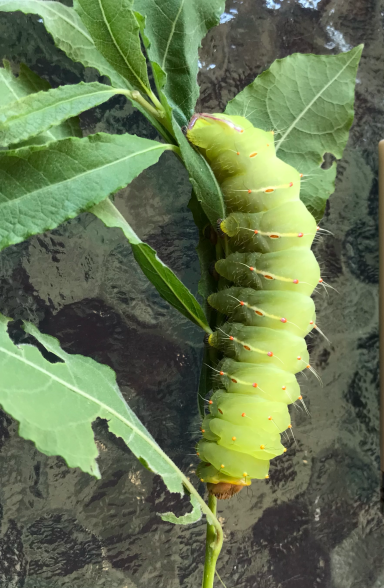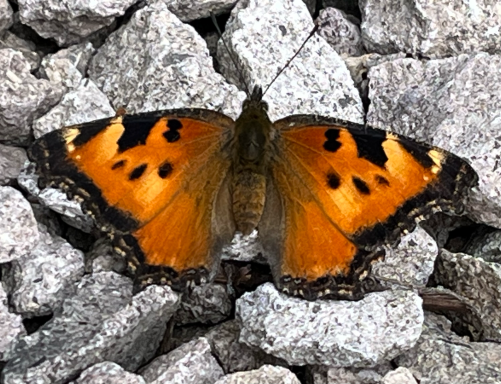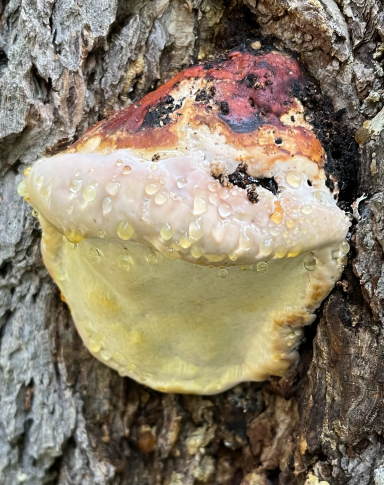Voices Advocating for Earth
Food for Thought
Stuff, so much stuff, why do humans need so much stuff? Whether we have a place to put it or actually use it up, people perpetually buy more stuff. When homes become filled, we park outside, when garages reach their limits, we rent a unit, further expensing our mountains of stuff. Storage rents often exceeding the value of what's stored inside.
The perishable items we purchased while hungry, collect in our refrigerators, cupboards, and pantries until we finally throw them out. Supplements and medications cover kitchen tables and counters in our hopes of miracles. Magazines, piled in corners, show us what to wear, have, wish for, and buy next. Doodads fill junk drawers and trinkets cover shelves, reminding of the need to dust. And collecting shoes is no longer just for women; many men can't see the closet floor either. What is motivating people to spend their hard earned money, and/or increase their debt, on stuff with little actual purpose or need? Has the goal of human life become simply possessing an overwhelming amount of stuff?
Food for Thought
My Grandmother loved to tell tales of yesteryears. Stories of market crashes, wars, the great depression, and walking miles through rain and snow to get to school, quite certain times and our lives were improving. Grandad seemed to have more to say about the present, always complaining about progress and the constant need to modernize, and often stating "they just don't make 'em like they used to" when new products did not measure up to antique counterparts. I listened, thinking Grams told tall tales and Gramps was just grumpy.
My career driven parents had made modern living look easy. Though desires were not always granted, us kids did our part, learning about the domestic chores a household requires. College was expected, funds set aside for years. But, by the time I received University degree, not only had my personal ideas of finance been altered, but those of our society as well. My interpretations of modern living shifted into a realm untraveled, one lacking correlation to earlier experiences.
Today, I know that an education won't land you a job and paychecks will rarely be enough, and why I needed to tell my children, 'clean your plate' or 'be grateful to have a winter coat', realizing meeting current needs difficult and could have been much harder for my grandmother. Now I even remind the grandkids to take care of their toys and not to wiggle in their chairs, as I recognize how products have been further cheapened than even those in grandads day.
Education and experience has taught me human desire and acquisition are required for a capitalistic and industrialized society's economic growth. The concept of reaching and maintaining a middle class lifestyle is to buy more, have more, get less, and store or throw much of it away.
In my grandmother's day, if she could afford to buy a loaf of bread, she knew it fed the baker's family too. If she could save enough to purchase a pair a shoes for my mother, she knew the cobbler's kids would have shoes as well. Grandad recognized the lack of regard for the consumer in new products and would not have been able to conceive the idea of planned obsolescence. Commerce and economics used to structure communities and provide livelihoods, when pride and competition delivered quality products, generating a beneficial revenue stream for workers as people modernized.
Instead of thinking in terms of today's rising prices due to tariffs, think about making local purchases and minimizing your consumption of foreign goods. Instead of thinking about inflation and the increasing prices for consumer products, think about controlling your own economy by reducing overall consumption for a better world. And the next time you read about the possibility of a recession, remember, this century's economists and politicians contrive the illusions of material prosperity, while you await a few coins to trickle down.
-Jessie
Check out past seasons in archives for more Food for Thought
Do you know?
Do You Know enough about the keywords currently flourishing in headlines and household dialogues--economic growth, GDP, inflation, interests rates--and how they impact your life? Let's have a quick review.
So we all are clear to their meaning, economic growth spurs investment, creating jobs and reducing unemployment, while increasing GDP (gross domestic product) and consumer spending, resulting in demands exceeding supplies, stimulating inflation and, to curb our spending, higher interest rates.
It may be without question how these words affect our lives, however, what most of us have not considered are the planetary boundaries when it comes to endless economic growth and its further economic anemia and the need to begin the cycle again.
As this summer's economy teeters on the edge with tariffs, rising prices, and government cutbacks, "[the Economics team from J.P. Morgan Research has revised its second-quarter consumer spending forecast to 3.0% — up from 2.0% previously. Overall, consumer spending is expected to rise 2.3% year-over-year for 2025". Clearly stating, regardless of CPI (Consumer Price Index), people love their stuff, living and breathing to have more, own more, including urban air pollution, rural wasteland, depleted resources, climate change, social inequality, and waste.
- Troubled
Up to 40 percent of all food in the United States goes unsold or uneaten each year.
One-third of all the food that is intended for human consumption is wasted or lost.
Though there is waste in every step of the food supply chain, consumer waste is the largest piece of the pie.
The 62 million tonnes of e-waste generated in 2022 would fill 1.55 million 40-tonne trucks, roughly enough trucks to form a bumper-to-bumper line encircling the equator.
The annual retail value of returned goods in the U.S. is said to be approaching one trillion dollars.
Amazon third-party sellers told CNBC they end up throwing away about a third of returned items.
Check out past seasons in archives for more Info to Know?
< Campenula glomerata - Clustered Bellflower (invasive perennial)
Get to Know Nature
Knowing and embracing nature will inspire us, as citizens of the world, to be conscientious individuals: protecting environments, consuming sustainably, and respecting the human ecosystem.
Tap image to view scientific names and descriptions and uses.
IF I WERE QUEEN or KING: -
IF I WERE KING, I would begin looking for, and at, alternatives to reform America's captitalist republic turned feudalistic democracy, It is a century past due.
Send us your ideas to make the world a better place, if you were a Queen or a King
Media and Links
Knowledge is our best friend. Local libraries are an oustanding resource for books, periodicals, videos, and internet access to continue your education, along with these contributions for reading, listening, and watching.
SCIENCE
First published in 1869, Nature is the world's leading multidisciplinary science journal.
National Institutes of Health (NIH)- Library of Medicine is the go to, over-funded Center for Biotechnology Information.
Science Direct is another great resource to find the latest studies in many of the sciences.
EDUCATION
Undark's independent digital magazine explores the intersection of science and society.
The Teaching Company delivers Great Courses, available in audio and video formats, on-line, and through libraries and TV providers.
Wikipedia is the place to go, when you want to know, what there is to know, about nearly everything.
FOOD
The USDA's FoodData Central is full of tools to learn more about the food we eat.
The Whole Grains Coucil has a wealth of information for you to get to know many whole grains and locate local retailers.
Search National Farmers Market Directory by state to find a local or destination market.
Tips for fact finding:
-For those who find reading abstracts difficult, begin by reading the introduction, then scroll to the
end and read the conclusion.
-Before accepting any statements of science journalism, scroll to the end of the article to find out
who funded the study. Often, claims being made support the industry funding the study, ie: "beef is
found to be a premium source of protein", study funded by the cattleman's association.
-When choosing lectures beyond the basics of science or history, select the most current,
subjects are continually overturning past findings in just a few years.
Statistics to Ponder
Statistics grab our attention with numbers.
The estimated number of storage facilities in the U.S. is 52,301, providing 6.1 square feet of rental space per American. The industry’s annual revenue in 2024 is $23.6 billion, according to IBISWorld. READ >>
Credit card debt in the United States at the end of Q4 2024 was $1.21 trillion. READ >>
What's Up for Autumn
Next season we will return to health and nutrition, addressing the debates around protein.
(annual) Papaver somneferum - Breadseed Poppy >




